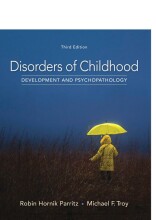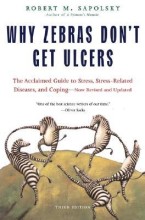Internalizing Disorders - Anxiety, Trauma & PTSD - Anxiety
34 important questions on Internalizing Disorders - Anxiety, Trauma & PTSD - Anxiety
What are general facts about anciety disorder?
- It exists across the world & most prevalent psychiatric disorder, often early onset, 2:1 female to male ratio
- High comorbidity with other mood disorders
- High individual impairment
- Anxiety is 6th most disabling disease.
What is the female to male ration of AD?
What turns adaptive anxiety into pathological anxiety?
- Intensity
- Duration
- Pervasiveness
- Higher grades + faster learning
- Never study anything twice
- 100% sure, 100% understanding
What is typical of adaptive anxiety?
What is typical of problematic anxiety?
What are normal fears in toddlerhood?
- Thunder, lightning, fire, water
- Darkness
- Nightmares
- Animals
What are normal fears for 6-7 years old?
- Strange, loud or abrupt noises
- Ghosts, witches or other supernatural beings
- Bodily injury
- Seperation from parents and being lost
- Being alone at night
- Being hurt or rejected at school
What are normal fears for 7-8 years old?
- The darkness and dark places
- Real-life catastrophes
- Not being liked
- Being left out of family or school events
- Being hurt or rejected at school
What are normal fears for 8-9 years old?
- Personal humiliation
- Failure in school or play
- Being caught in a lie or misbehavior
- Being the victim of physical violence
- Parents fighting, separating or being hurt
What are typical fears for 9-11 years old?
- Failure in school or sports
- Becoming sick
- Heights and sensations of vertigo
- Sinister people
What are typical fears for 11-13 years old?
- Failure in school, sports or achieving popularity
- Looking or acting strange
- Life-threatening illnesses or death
- Sex
- Being fooled or humiliated
What are the shared characteristics of anxiety disorders?
- Excessive fear and anxiety
- Realted to behavioral disturbances
- Not attributable to physiological effects of medication, substances or a medical condition
What are differences between anxiety disorders?
- The types of fears of avoided objects or situations
- Content of associated thoughts or believes
What are the different kind of AD mentioned in the DSM-5?
- Seperation anxiety
- Selective mutism
- Specific phobia
- Generalized anxiety disorders
- Social anxiety disorders
- Panic disorder
- Agoraphobia
What is separation anxiety?
What are symptoms of separation anxiety?
- Excessive worry that caregivers may be harmed
- Persistant refusal to go anywhere which may cause separation
- Frequent nightmares about separation
- Recurrent physical complaints when not in close proximity to attachment figures (can be real of imagined)
What is selective mutism?
What are symptoms of selective mutism?
- Interferes with educational, occupational & social achievement & interaction
- Has a duration of at least one month (not limited to the 1st month of school)
- Not attributable to a lack of knowledge of comfort with speaking
- Not better explained by other disorders (e.g. ASD, communication disorder)
What is a specific phobia?
What are symptoms of specific phobia?
- The (anticipation of the) phobic object almost always evokes immediate anxiety
- The phobic object/situation is actively avoided or endured with intense fear
- The fear is out of proportion (irrational) & persistant (>6 months)
- Not better explained by another disorder
What are the 5 categories when it comes to specific phobia?
- Animals
- Natural environments
- Blood/injection/injury
- Situational
- Other
What is an example of a situational specific phopbia?
- Flying
- Elevator
What are symptoms of generalized anxiety disorder?
- Difficulty in controlling the worrying
- Associated with 3 or more other symptoms
- Clinically significant distress or impairment
- Not attributable to medication, substance or other medical or mental disorders
What are the other symptoms generalized anxiety disorder can be associated with?
- Chronic fatigue
- Irritability
- Difficulty concentrating,
- Difficulty sleeping
- Muscle tension
- Edginess
- Restlessness
What are symptoms of social anxiety disorder?
- Individuals fears they will act in a way or show anxiety symptoms that will be negatively evaluated
- Social situations are avoided or endured with intense fear/anxiety
- Social situations almost always provoke fear
- The fear is out of proportion
- It is persistent for > 6 months & there has to be clinically significant distress
- Not attributable to substance, medication or another disorder/condition
What are the negative consecuences of social interaction that are feared?
- Humiliation
- Rejection
- Offending others
What type of behavior is avoided during social situations by people that have a social anxiety disorder?
- Eye contact
- Eating in public
In what type of situations do people experience social anxiety?
- Social interactions
- Being observed
- Performing
What is a panic attack?
What are symptoms of a panic attack?
- Pounding or accelerated heart rate
- Sweating
- Trembling or shaking
- Nausea
- Feeling dizzy/light-headed or fainting
- Chills or heat sensations
- Shortness of breath
- Feelings of choking
- Numbness or tingling sensations
- Derealization/depersonalization
- Fear of losing control/going crazy
- Fear of dying
What are symptoms of a panic disorder?
- Attacks are followed by a one month period of perisistent worry about having an attack
- Significant change in behavior because of the attacks
- Not attributable to substance, medication or another disorder
What are parent factors associated with anxiety and OCD?
- Overprotective, over-controlling, negative/critical or intrusive parenting
- Parent fears
- Lack of the role of the father
What are child factors associated with anxiety and OCD?
- Genetic predisposition
- Temperament (anxiety-sensitivity & inhibition)
- Cognition (e.g. ability to reflect on your own cognitions)
- Less mental flexibility
What are environmental factors associated with anxiety and OCD?
- Insecure attachment
- Loss of parents or parental divorce
- Negative life events (trauma)
- Peer rejection
The question on the page originate from the summary of the following study material:
- A unique study and practice tool
- Never study anything twice again
- Get the grades you hope for
- 100% sure, 100% understanding































